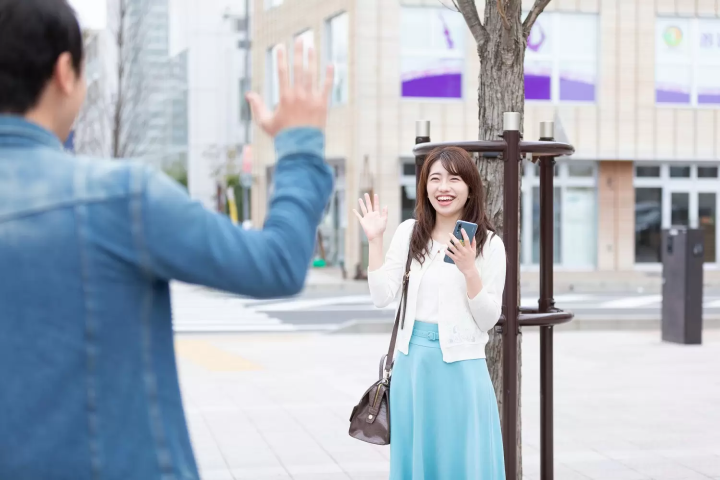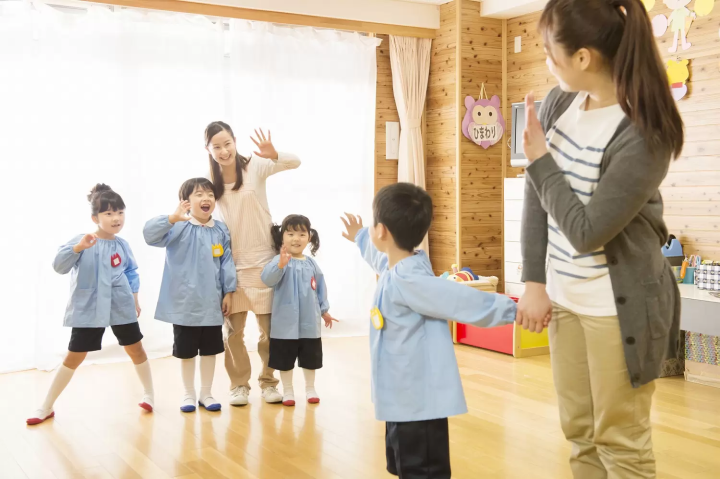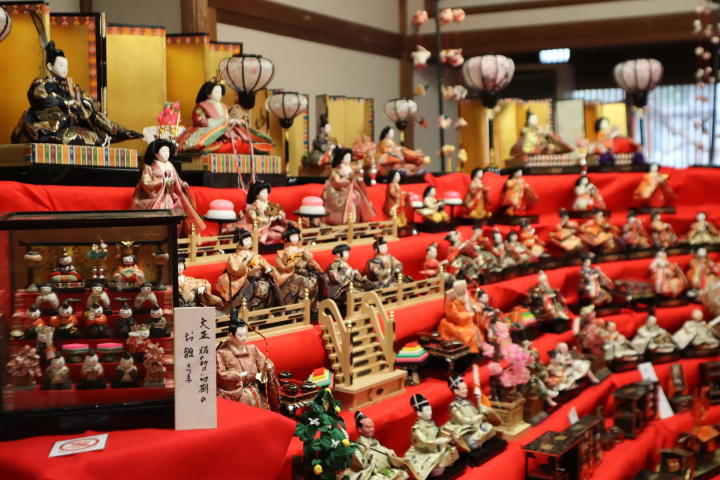Sayonara: Meaning and Why You Should Never Use It

Sayonara is often introduced as the Japanese word for "goodbye" but it actually implies an indefinite separation. Learn about the original meaning of "sayonara" and alternative ways to say goodbye in Japanese.
The Tricky Meanings of Sayonara
Sayonara is often mentioned as one of the basic Japanese phrases. The truth is, however, that native speakers rarely use it, and when they do, it's either a joke or a very particular context.
Sayonara does mean "goodbye" but it implies that you don't expect to meet the other person again very soon.
Read on to learn more about sayonara and alternative ways to say "goodbye" in Japanese.
All About Sayonara
Sayonara: Meaning and Word Origin
How to Pronounce Sayonara
Other Ways to Say Goodbye in Japanese
1. Arigato gozaimashita
2. Shitsurei shimasu
3. Itte kimasu
4. Mata ne!
5. Dewa mata! and Mata nochi hodo!
6. Bye, bye!
7. Ogenki de!
Sayonara: Meaning and Word Origin

Photo by Pixta
The literal meaning of "sayonara" is "if this is how it's meant to be."
Sayo, meaning "like this" or "this way," can also be found in phrases like sayo degozaimasu, which means "that's right."
The nara part of the word means "if" and has evolved from "naraba" ("if").
Through extension, sayonara means "goodbye, farewell" with the implication that the separation will be for an indefinite time.
To use "sayonara" means you're accepting the fate that you might never see the other person again.

Sayonara hurts. Photo by Pixta
In Japan, "sayonara" is the last word people say to each other when they break up. It might also be used as a joke, and in contexts like "I said sayonara to my bachelor life."
You might also hear it in anime or TV series, when characters depart, waving their hands and saying "sayonara!" to newly made friends who helped them in a place they visited for the first time. The implication is that they don't know if they'll ever be reunited again but they were happy to meet nonetheless.
To sum up, we recommend never using "sayonara" toward someone whom you're supposed to meet again.
There are many other alternative phrases for "goodbye" in Japanese. We introduce some of them below.
How to Pronounce Sayonara
In Japanese, sayonara is pronounced sayónara, with the accent on the second syllable ("yó").
It might be tempting to pronounce it sayonára, stressing the third syllable ("na"), but please be aware that this pronunciation is not correct.
Other Ways to Say Goodbye in Japanese
Depending on your relationship with the person you're saying goodbye to, but also the situation and whether you're supposed to meet them again soon or not, there are various ways of saying goodbye.
1. Arigato gozaimashita

Photo by Pixta
If you're visiting Japan and want to say goodbye to your host, hotel staff, or another person who was kind to you, the last word you say to them before departing can be arigato gozaimashita = "thank you for what you've done for me."
The "-mashita" ending indicates that the action (=their kindness toward you) has been completed, so it belongs to the past. This makes it different than "arigato gozaimasu," which can be used as "thank you" for individual acts of kindness.
So when you're leaving a place where you've felt welcome and well-cared for, try to say "arigato gozaimashita."
2. Shitsurei shimasu
The literal meaning of shitsurei shimasu is "I'm committing an impoliteness."
Used when leaving a place, it simply means "I'm leaving" with the implication that the other should not take offense because you're leaving.
Despite its original meaning, "shitsurei shimasu" is a very convenient phrase for saying goodbye in situations that don't involve emotional attachment.
If you were invited to a group dinner but want to leave earlier than the others, you thank them for their company with "arigato gozaimashita," and the last thing you say before leaving the room is "shitsurei shimasu."
"Shitsurei shimasu" is how we say goodbye to coworkers in Japan at the end of a workday. (We might add an "otsukaresama deshita" = "thank you for your hard work")
3. Itte kimasu
Itte kimasu means "I'm leaving but I'll come back."
This is the best phrase to use when leaving your home or accommodation in the morning but intend to come back in a few hours or at the end of the day.
"Itte kimasu" is the phrase to use toward friends, your hosts, or family, whom you expect to meet again at the end of the day or after a temporary separation.
↑ Return to the top of article.
4. Mata ne!

Photo by Pixta
Mata means "again" so Mata ne! is used among friends to say "See you again soon!"
Please note, however, that this is a casual phrase and should only be used toward friends.
You should not say "Mata ne!" to people you don't know well; in some situations, it might actually be interpreted as harassment.
We also don't recommend using this phrase toward people who are older than you or are hierarchically superior - although they might kindly use it toward you.
5. Dewa, mata! and Mata nochi hodo!
Dewa, mata! and its shortened version Jaa, mata! also mean "See you again soon!"
This is actually the closest Japanese phrase to the French "Au revoir!"
A little less casual than "Mata ne!," these phrases can be used with peace of mind in a wider array of situations, especially toward friends and people whom you expect to meet again soon.
You can also use Mata nochi hodo!, which means "See you again later."
When you want to say "Say you again soon!" but want to sound a little extra polite, you can say Soredewa, mata. This is the original form of the phrase, and can also be used as a closing word to emails and written greetings.
6. Bye, bye!

Photo by Pixta
If you live in Japan, you've probably heard schoolchildren cheerfully shouting "Bye, bye!" to each other at the end of the day.
Bye, bye! is often used among young people in Japan to say goodbye to their friends. It is also common among young couples at the end of a date or a phone conversation.
So, feel free to use Bye, bye! in Japan when saying goodbye to really close friends.
7. Ogenki de!
Genki means "healthy" and "full of energy."
Ogenki de! is short for "Ogenki de osugoshi kudasai," which means "Please stay healthy" or "Take care of yourself."
So it's a simple way of wishing someone to stay in good health while you're separated. It expresses concern and warm feelings.
You can say "Ogenki de!" to a senior person who took care of you during your stay in Japan (after thanking them with "arigato gozaimashita").
Ogenki de! can also be used as "goodbye" toward people you feel affection toward but you'll be separated from for a while.
Say Goodbye Properly for Happy Reunions
We've introduced seven ways to say "goodbye" in Japanese. Any of these is better than "sayonara," which implies an indefinite separation.
We especially recommend "Itte kimasu" ("I'll be back soon!") and "Dewa, mata!" ("See you again soon!") for when you expect to meet the other person again after a short while.
Read also
Main image by Pixta
Ramona, English content editor at MATCHA since 2016, has been practicing ikebana flower arrangement (Ikenobo School) and tea ceremony (Omote Senke) since 2012. She arrived in Japan in 2012 as a graduate student with a focus on Japanese literature and performing arts. As a travel editor and writer, Ramona has visited and documented 40 of Japan's prefectures with a focus on art, history, traditional Japanese crafts, and performing arts.
































![[During Your Kumano Trip] Cape Shionomisaki Tourist Tower](https://resources.matcha-jp.com/resize/720x2000/2025/11/05-249097.webp)

![[Kagoshima] Enjoy Minamisatsuma City to the Fullest! A Guide to the Scenic Beauty and Culture of Five Areas](https://resources.matcha-jp.com/resize/720x2000/2026/02/15-258755.webp)

![[Yufuin]Yufuin in 100 Minutes: Quick Access Guide](https://resources.matcha-jp.com/resize/720x2000/2026/02/15-258738.webp)
The phrase "ittte kimasu" often carries the nuance of "please watch over me as I move forward," and is frequently used in anime and movies when the protagonist says goodbye to someone important and sets off on a journey with determination.